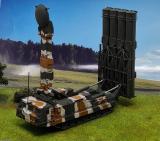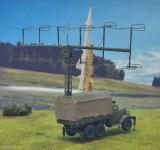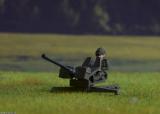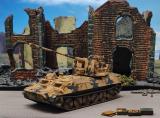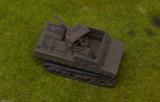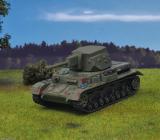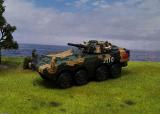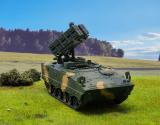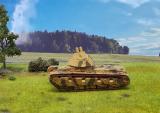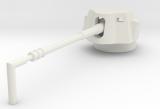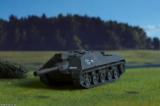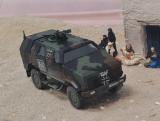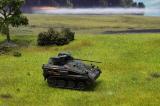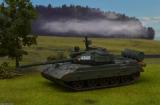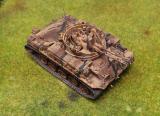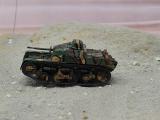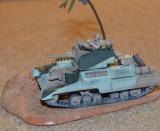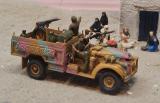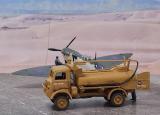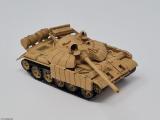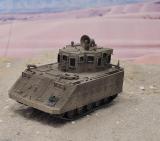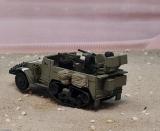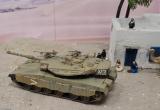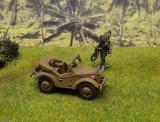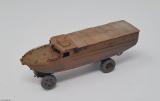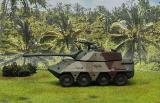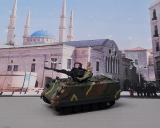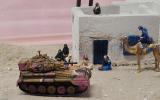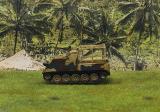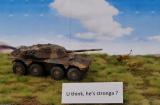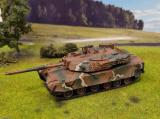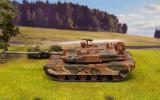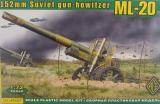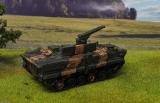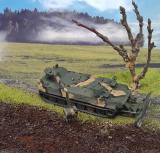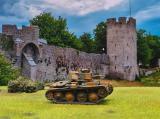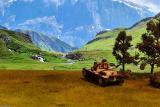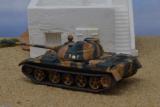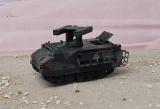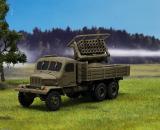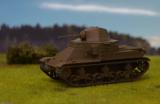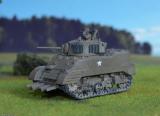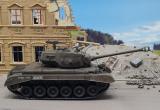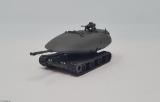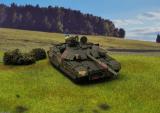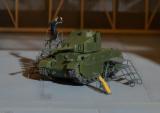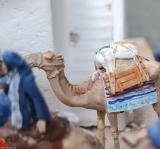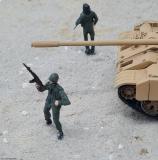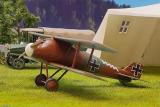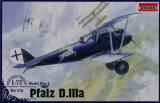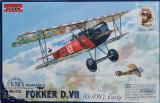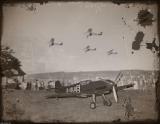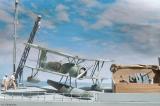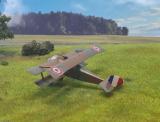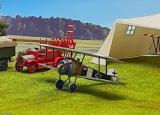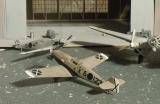| Betreiberland | Betriebsaera | Modell | Farben | Bild |
|---|---|---|---|---|
| Österreich-Ungarn | Pre1914 | kuk Marine | Bis 1900/1902 Victorian Style: schwarzer Rumpf, weiße Aufbauten, gelbe Schornsteine 1902-1913 'Montecoccolin': Olivgrün über alles. Die Farbe wurde für alle sichtbaren Teile des Schiffs verwendet: Rumpf, Stahldecks, Masten, Brücken, Aufbauten, Dampf- und Motorbarkassen und Segel. Die großen Beiboote wurden innen mit einem dunkelgrün gestrichen, die kleinen Beiboote waren innen weiß. Anker und Ketten waren aus blankem Stahl, der mit Leinöl geschützt wurde. Die Rettungsringe waren bis 1910 weiß, danach weiß-rot-weiß. Quelle: (1682)(1683) Modell SMS Erzherzog Karl auf Modellversium siehe http://www.modellversium.de/galerie/26-schiffe-ww1/15042-sms-erzherzog-karl-wsw-modellbau.html | 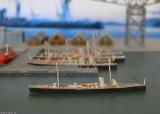 |
| Österreich-Ungarn | Jahr(1885-1905) | kuk Marine | War Times Journal http://www.wtj.com/store/index_paint_guide_hist-paint.html(1684): Peacetime: As with other European fleets, a Black hull with White or Silver Grey (883) upperworks and funnels. Unlike the rest of the upperworks and funnels, the ventilators, gun barrels and masts were commonly painted black like the hull. Turret tops seemed to be dark grey. Wartime: Reported by Jane's as being Sea Green. The best combination for this seems to be a 1:1 mixture of Medium Sea Grey (870) and Grey Green (866), although straight Grey Green also works while giving a greener but darker appearance. | |
| Österreich-Ungarn | WkI | kuk Marine | 1913 'Hausian' mit SMS Radetzky getestet und dann komplett übernommen: helles Blaugrau. Ausgenommen Oberseiten der Geschützturme, alle Dachflächen, Stahldecks und die Schornsteinkränze – diese wurden dunkelgrau lackiert. Beiboote auch hellblaugrau, einige schwarzer Unterwasseranstrich der Beiboote. Ab 1914 wurden Suchlichter, der Fockmast oberhalb der Schornsteinkränze, die Schornsteinkränze und der Hauptmast oberhalb der Suchlichtplattform schwarz gestrichen. 1916/17 wurde der Fockmast und der Hauptmast über der unteren Rah hellgrau gestrichen. Alle Poller wurden dunkelgrau lackiert. Der Wasserpass rosa, nach März 1915 dunkelgrau. Unterwasser roter Rostschutz grundiert und danach Kupfergrün bestrichen. Im Verlauf des Krieges graue Schutzfarbe SANKT GEORG und mglw. auch die ERZHERZOG FERDINAND MAX, die ERZHERZOG FRIEDRICH und die ERZHERZOG KARL hatten hellgraue Linoleumdecks, alle anderen Holzdecks Quelle: (1682) | 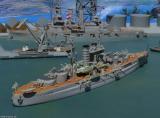 |
| China | Jahr(-200-heute) | Asian Wooden Sailing Vessels (I) | Revell Purpur 331, Braun | 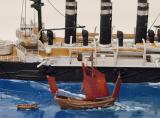 |
| China | Jahr(1885-1905) | China | War Times Journal http://www.wtj.com/store/index_paint_guide_hist-paint.html(1684): Peacetime: Black hull with white upperworks and ochre funnels. Wartime: Same hull color with the white and ochre painted over with neutral grey (992) | |
| China | Afterwar | PLA 054A++ Jiangkai II 576 Daqing | hellgrau 76, mittelgrau 57, blaugrau |  |
| Deutsch | Pre1914 WkI | SMS Emden | Zitat von Facebook Joseph Lavender 17.07.2022 in der privaten Gruppe Warships of WW1: Emden, a bit of a specialty of mine. The bow and stern decks, as well as the deck above the bridge, the bridge wings, exposed stair treads, flying deck, the deck where the funnels and the compass platform were linoleum, held down with 2inch brass tack strips. The searchlight platforms were bare steel with tread painted dark grey. The main deck was planked with teak. Also the deck below the guns on the extreme ends were teak. Since the two ships, Emden and Dresden used different propulsion plants, the deck arrangement on Dresden was different from Emden. The coaling chutes are in different positions on both ships, and Dresden has a slightly different steam pipe arrangement on the funnels. The spare propeller blades were carried on the main deck for both ships. After the declaration of war was received, most flammable items were chucked over the side. The crew followed the orders a little too literally, however, and all of the officer’s wardroom furniture was chucked, including their wood chairs. This was a bit of an issue because the officers had nowhere to sit. It was noted that next time, a little more common sense should be exercised. However, the linoleum and wood decks remain in place. As for paint schemes, it’s often assumed she was painted in the white and buff colonial service scheme, but that was LONG gone by 1914. In fact the the buff scheme was ordered to be painted out in May 1910, being replaced with Scheme 9, the two tone grey scheme. It is believed by some that Emden was painted in a single tone scheme prior to the raiding mission. Both Mücke and Müller mention a repainting but sadly they don’t state if they used the scheme 9 standard, or something monotone in order to pass as a Royal Navy ship as she did later on. It’s a little confusing, and photos of the wreck are no help.(1689) | 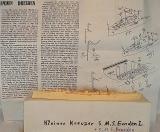 |
| Deutsch | Jahr(1885-1905) | Deutsch | War Times Journal http://www.wtj.com/store/index_paint_guide_hist-paint.html(1684): Peacetime: In European waters the hull can be one of several possible schemes: Medium Sea Grey hull (870) with Silver Grey upperworks (883), or silver grey all over. Also, Silver Grey hull with White upperworks would be another possibility. Other variations seem to have included white turrets (on the Brandenburgs) and dark grey turret tops on the newer battleships. For tropical service cruisers would have their hulls white with upperworks painted Ochre (913). Unknown how their battleships were painted for tropical service, which would apply only to the Brandenburgs. Wartime: Unknown, probably Silver Grey (883) all over, which is what we use. An extra note on German battleships, aerial photos indicate that their decks were noticeable darker, so a medium brown or tan-earth would probably be more accurate than using the light deck tan typical on other ships. | |
| Deutsch | Wk2 | Sperrbrecher 13 Minerva 1943 | Deck blaugrau 79, holz392 Rumpf weiß, hellblau 49, Lifecolor US Navy Blue 5N UA626, schwarz |  |
| Deutsch | Wk2 | LWS-Anhänger 20t mit LWS 3 00 | Grau 57, Blaugrau 79 (Marinefarben), Anhänger nur 79. | 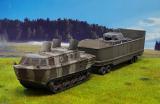 |
| Deutsch | Wk2 | U-Boote | Siehe pdf in https://www.facebook.com/groups/2773465416277933/permalink/3553805064910627/?rdid=ZIAhKYF5oMAmQHvA&share_url=https%3A%2F%2Fwww.facebook.com%2Fshare%2Fp%2Ft1a7Jv8DV7D2c49S%2F | |
| Deutsch | Wk2 Für die Klasse: Afterwar | Z37 | Revell Grau 57|Revell 78|Revell 79 |  |
| Deutsch | Wk2 Afterwar | Torpedos | Kopf: Schwarzgrau bzw. Schwarz bei Gefechtskopf, rot/weiss längsgestreift bei Übungskopf Körper: metallisch blank bei Rohrabschuss hellgrau bei Aussenmontage und bei oft verwendeten Übungstorpedos hellgrau auch bei U-Booten/Schnellbooten ab 42 Heck: metallisch blank oder hellgrau/mittelgrau Ruder grau Schrauben: messing/bronzefarben, später dann edelstahlfarben bzw.schwarz oder grau gestrichen. Bunte Körper sind Nachkriegsvarianten, z.B. Blaue Ü-Torpedos bei der Bundesmarine, Dunkelgrün in Norwegen und DK. | |
| Deutsch | Jahr(1985-1990,1991-1996,1997-heute) | Tarantul I 1241RE Hiddensee | Hellgrau Revell 76 Deck Farngrün 360 |  |
| Finnland | Jahr(1918-heute) | Finnish camos over the time | Aufsatz des ipms.fi: https://www.ipms.fi/images/PDF/Erikoisnumero-vuodelta-1999-pakattu.pdf, further info from FB group 'Warship Camouflage Research Group' on Ilmarinen 1941 (though different, the following more trustful?): Light gray, black, dull graygreen and dull brownish gray. Exact hues unknown, and: Brown gray and geengray are quite close to each other. Dark slate gray and dulled German brownviolet probably close matches. Thanks to Jari, Viktor who helped me on that! | |
| Finnland | Interwar Wk2 Afterwar | Ilmarinen 1941 | Light gray=Revell hellgrau 76, black=Revell Anthrazit 09, dull graygreen=Revell graugrün 67 and dull brownish gray=Revell 50/50 gelboliv 42,braun 381 |  |
| Frankreich | Jahr(1885-1905) | Frankreich | War Times Journal http://www.wtj.com/store/index_paint_guide_hist-paint.html(1684): Peacetime: Hull is black with upperworks and funnels either silver grey (883) or ochre (913). Boundaries between hull and upperworks colors tended to vary widely, some placed very high on the ship at spar deck edge, and some lower at main deck edge.. Best to find photos of actual ships. Wartime: Unknown, probably a Dark Sea Grey (991) or Medium Sea Grey (870) all over. Some sources quote French ships having a distinctly greenish grey, which is supported by some builder's models still in existence. | |
| Frankreich | Wk2 | Frankreich Marine wk2 | Zitat Antwort Aryeh Wetherhorn: the Atlantic raiding squadron used a darker shade of grey, and reverted to grey number 1 (the French designation for light grey) after the armistice. Decks were wood. Recognition and heraldry marks were also very interesting. Tricolors were painted on turrets and gun shields, always with blue towards the bow. Most ships carried the tricolor on turrets B and X, but the 2 cruisers in the Far East painted it on all 4 turrets. Destroyers followed the same system,but there were variations. The torpedo boat division in Bizerte painted stripes on the forecastle similar to those used by the Italian fleet. Destroyer hull numbers were built around a division number (e.g. X!0 or T5) with the addition of a sequence number based on the seniority of the captain within each division. The hull numbers were red, but each division also carried colored bands on a funnel according to the division number. Cruisers also used funnel bands to indicate their position within each cruiser division. The senior ship usually had no bands, but the next two carried one or two bands, again, according to seniority. The colors of the bands were standard. Cruiser division 1 used white, 2 black, 3 yellow. 4 green and 5 red. Destroyers had more division and so they also used blue, and had one or two bands depending upon division numbers. Some ships also put a tricolor on the sides of a deckhouse. A few submarines painted a tricolor on the sail (conning tower) and one carried the tricolor across the saddle tanks down to the waterline. Credit: (1681) | |
| GB | Jahr(1885-1905) | GB | War Times Journal http://www.wtj.com/store/index_paint_guide_hist-paint.html(1684): Peacetime: Black hull with white upperworks and turrets and ochre funnels and masts. Great Britain appears to have adopted overall grey peacetime colors very early (maybe by 1903 or so). The black hull often had a narrow white band just below its upper edge, all the way around the ship. Sometimes (rarely, seen once on HMS Nile) the black was carried up onto the upperworks as high as the edge of the spar deck, making the turrets black instead of white. Ships on tropical station would usually have white hull with white or ochre upperworks and ochre funnels. Wartime: Dark Sea Grey (991) all over (except maybe lifeboats, which can still be painted white with brown wash on top). | |
| GB | WkI | GB Destroyer | May 6, 1915 Destroyers were to be painted dead black. On June 4, 1915 Destroyers to remain dead black but masts to become a very light grey. On July 7, 1916 all torpedo craft hitherto black to be painted grey. Hull 1 part black to 20 parts white (by weight), upper works to use mixture 1 part black to 23 parts white.(1686) | |
| GB | WkI Für die Klasse: Interwar Wk2 | HMS Shakespeare | Deck Braun Revell 381, sonst hellgrau Revell 76 | 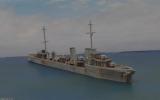 |
| GB | Jahr(1920-1941) | HMS Hood | after refit 1940 507A - Dark Grey, Home Fleet shade |  |
| GB | Jahr(1930) | County cruisers China Station, East Indies Station | Von Autor Jamie Duff in Facebook: China Station never wore white and buff anyway ... - that was a myth started sometime around the 1970s. It was white hull with 507B grey upperworks. East Indies Station used white overall except for primrose yellow masts and funnels - that's what the original 1960s Airfix box art portrays. | |
| GB | Jahr(1930-1941) | British Aircraft Carriers 30s, early 40s | Deck Colour Bronze Grey | |
| GB | Wk2 | GB | https://www.sovereignhobbies.co.uk/pages/british-royal-navy-colour-schemes | |
| GB | Afterwar | HMS Ajax F114 Ikara | Deck Revell Seegrün 48 |  |
| Italien | Jahr(1885-1905) | Italien | War Times Journal http://www.wtj.com/store/index_paint_guide_hist-paint.html(1684): Peacetime: Typically a Black hull with White or Silver Grey (883) upperworks. The transition between black and white could be along the edge of the main deck, or sometimes down the middle of the amidships bulwarks/casemates. The funnels and masts were commonly painted ochre, and in some cases - such as vessels like Italia or Andrea Doria - the lower half of the funnels would be white and the upper half would be ochre. In vessels with superheavy guns, the gun barrels were sometimes painted black or dark grey. Wartime: Unknown, probably Dark Sea Grey (991) all over. | |
| Italien | Jahr(1913-1944) | Indomito 1913 | Revell blaugrau |  |
| Japan | Jahr(1885-1905) | Japan | War Times Journal http://www.wtj.com/store/index_paint_guide_hist-paint.html(1684): Peacetime: Black hull, funnels and ventilators with white upperworks and turrets. Masts would be black or have black bases and ochre tops. One to three white I.D. bands around upper 1/3 of funnels. Wartime: Neutral grey (992) all over with top 20% of funnel black. Some larger vessels had their mast tops painted black down to a point even with the black funnel bands. | |
| Japan | Interwar Wk2 | Notoro IJN Seaplane Tender | Rumpf blaugrau Revell 79, Deck Revell Holzbraun 382, Bambusverdeck des Hangars Beige |  |
| Japan | Afterwar | Chikyu Deep Sea Drilling | Ultramarin 51 (water pass), Laubgrün 364 (Deck), weiß | 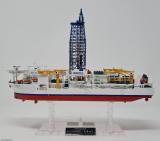 |
| Kolumbien | Jahr(1983-heute) | Almirante Padilla FS 1500 | hellgrau, blaugrau |  |
| NL | Wk2 | U-Boot UD-2 ex O-12 | NL-U-Boote meist: Turm hellgrau, Rumpf oberhalb WL zartgrün, schwarzer Trennstreifen, roter Unterrumpf |  |
| Rumänien | Wk2 Afterwar Für die Klasse: Interwar Wk2 | Regele Ferdinand | Deck Holzbraun Revell 381 + washing, sonst sehr helles grau Revell 371 |  |
| SU | Jahr(1885-1905) | SU | War Times Journal http://www.wtj.com/store/index_paint_guide_hist-paint.html(1684): Peacetime: Most ships had white hulls with ochre funnels and a black band around the top 25% of each funnel. Wartime: The Baltic Fleet – including those ships which sailed to Tsushima – had black hulls with ochre funnels and a black band around the top 25% of each funnel. Early War Port Arthur fleet cinnamon as a low quality black painted over peacetime colors. One part chocolat, one part black gray. Late war Port Arthur fleet 2-tone khaki upperworks and olive-drab hull. For smaller cruisers khaki overall Wladiwostok cruisers olive-drab overall | |
| SU | WkI Interwar Wk2 Für die Klasse: Afterwar | Krasnaya Abkhasia | Revell Grau 57 |  |
| SU | Afterwar | Moskva 2022 | Deck Revell 50% Feuerrot 330, 50% Rost 83, sonst Hellgrau 76 |  |
| SU | Afterwar | Petr Velikiy 1994 (Pjotr Weliki, Peter der Große) | Deckrot 50% holzbraun 382 50% Ziegelrot 37 mglw Deck Umsetzung in rostrot |  |
| SU | Afterwar | OSA II | hellgrau, deck rostrot |  |
| Spanien | Jahr(1885-1905) | Spanien | War Times Journal http://www.wtj.com/store/index_paint_guide_hist-paint.html(1684): Peacetime: Most ships had a black hull with white upperworks (superstructure) and ochre funnels. Some light vessels were seen to have all white hulls and upperworks with ochre funnels. | |
| Türkei | Pre1914 WkI Interwar Wk2 Afterwar Jahr(1913-heute) | Nusret | Pale khaki |  |
| Türkei | WkI | SMS Weissenburg (1894) / türk. Torgud Reis, SMS Weissenburg (1894) / türk. Torgud Reis | Khakibraun 86 |   |
| USA | Jahr(1885-1905) | USA | War Times Journal http://www.wtj.com/store/index_paint_guide_hist-paint.html(1684): During peacetime US ships tended to have white hulls with ochre upperworks and funnels. The boundary between the white and ochre was different in different ships, and often passed horizontally across major features, especially gun turrets. So that the top half of a turret might be painted ochre and the bottom half painted white, especially in the lower aft turrets. Gun barrels often painted black. During war time they were painted Medium Sea Grey (870) all over (except maybe lifeboats, which can still be painted white with brown wash on top). | |
| USA | Jahr(1889-1899) | USS Charleston C2 | Rumpf und Schutzschilde weiß, Geschütze schwarz, Schornsteine, Lüfter, Mastern ocker | 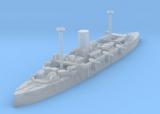 |
| USA | WkI Interwar Wk2 Jahr(1917-1945) | USS Allen DD-66 | weiß, himmelblau 59, Lifecolor Navy Blue, schwarz |  |
| USA | Jahr(1918) | US Destroyers 1918 | On my question after the colour of US Destroyers end of WWI (specifically USS Allen DD-66), Aryeh Wetherhorn answered: This pattern, or close variants of it, was used on several US destroyers. Early admiralty designs for US destroyers used a variety of colors, including pink, mauve, buff, yellow, and others. The US adaptation of this design called for only Black, White, #3 Blue, and #2 Blue-grey. Later Admiralty designs often followed the US choice of colors. There appears to have been good communication between the offices on opposite sides of the Atlantic. The British objected to pure white, and the Americans then substituted a toned down color called Grey-White. At the same time, the Admiralty dropped some of their brighter colors in favor of the the American basic 4 color palette. but that, too was subject occasional, or even frequent, additions or substitutions. I think you could use the basic US colors without feeling you were going too far afield. | |
| USA | Wk2 | USS Crossbill AMc-9 1941 | Offiziell alle US Aux Measure 14 ab 1942: vertikal Ocean Gray, Horizontal Deck Blue, Masten etc oiberhalb der Aufbauten Haze Gray. Allerdings auf den Bildern von Amc-9 eindeutig heller, daher vertikal komplett in hellgrau bemalt | 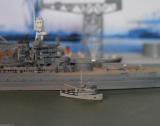 |
| USA | Wk2 | USA generell | siehe http://www.shipcamouflage.com/ Speziell: Life Rafts wurden auf dem Schiff in Hintergrundfarbe gestrichen, also z.Bsp. auf horizontalen Flächen liegend Deck Blue. | |
| USA | Wk2 Afterwar | USS Chicago CG-11 ex CA-136 | hellgrau, blaugrau, karminrot 36 |  |
| USA | Wk2 Afterwar | USS Intrepid CV-11 w/ angle deck 1972 | Hellgrau, Staubgrau 77, Panzergrau 78 und sehr viele Mischungen sowie Pigmente |  |
| USA | Wk2 Afterwar | USS Gearing FRAM, USS Robert E. Peary ( FF-1073 ) | hellgrau, blaugrau |   |
| USA | Jahr(1941) | USA BB in Pearl Harbour 7.12.41 |
California MS-1 no question. Nevada painting out of MS-1/5 as time allows. Maryland MS-12 pattern in old colors, 5-D hull, older very dark 5-O upperworks, 5-L tops. Oklahoma unknown for attack day but had been in MS-1/5 as late as October 1941. Tennessee probably MS-1A substituting 5-S for 5-D, painted by Ships Force with no 5-H interlayer. West Virginia painting out of MS-1, hull was 5-D, upperworks a patchwork of colors consistent with fleet order allowing vessel COs to use the newer paints in various combinations on the upperworks until the next yard period. When raised she does show zinc chromate and red lead patches, again in compliance with fleet orders to only use ZC and red lead for corrosion control until repairs completed in drydock. Pennsylvania probably MS-1. Arizona one high quality B&W film shot the afternoon of Dec. 7 show her aft turrets and hull to be too light for 5-D, this film starts at AZ's stern and continues down the battleline to CA, shot from a small boat, 35mm. One snippet of color film shot from a small boat within a day or two of the attacks shows her aft turrets and hull to be blue. I am not hazarding a guess as to which blue as it is light enough to be the darkest 5-S on the Snyder & Short chip set but could also be 5-N. Fleet orders to be aware of for the time period: For graded schemes defined in SHIPS-2 Rev.1 5-L to be used in lieu of 5-H for light structures and pole masts until stocks depleted or sufficient 5-H available. When repainting from darker schemes such as MS-1 or MS-4 YARD FORCE must use 5-H interlayer to prevent bleed through of darker paints. SHIPS FORCE not required to use 5-H interlayer, COs discretion depending on stocks available. Modified MS-2 called for hulls to remain 5-D (previous fleet order to ships to retain only enough 5-D for one complete repaint of the HULL only) with the upperworks to be repainted as needed into the new colors at the CO's discretion. All ships sitting on the bottom to only use zinc chromate or red lead for corrosion control purposes until raised and repaired in drydock. Use of camouflage paints specifically forbidden. Credits: Roland Thompson, Researcher. In a statement in Camouflage Group in Facebook | |
| USA | Jahr(1943) | USA | Light grey deck ,deck and bulkheads ,Overhead white or pee green for interior spaces except Galley white. Hanger deck , light grey deck bulkheads, elevator and overhead, dark grey deck. Engineering spaces, light grey deck on deck and white bulkheads and overhead. Some ships used catchup color on deck of the Galley and deck of engineering spaces. A lot of it depends on the the skippers whim.(1685) | |
| USA | Jahr(1985-1990,1991-1996,1997-heute) | Tarantul I 1241RE Hiddensee | Hellgrau Revell 76 Deck Farngrün 360 |  |
